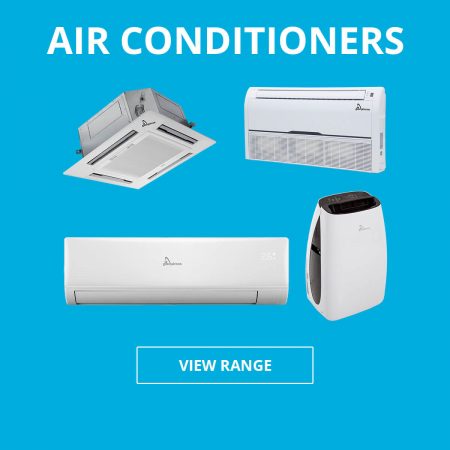Power outages are never convenient and always seem to happen at the worst times. Whether it’s a malfunction in the electric system or caused by severe weather, most people feel better knowing they have a generator to run the house when the power is down. Refrigerators, AC, and outlets are some of the most important things to keep running when the power goes down. Think of all of that food that could go bad and even worse — in the heat. For those who live in warm weather year-round or just a place with warm summers, a generator that can power the AC might be a must-have. However, generators can be expensive, so if you’re on a budget you might opt for a portable one. But can a portable generator run an air conditioner?
Why get a portable generator
Losing power is one thing, and sitting in the extreme heat is another. Purchasing a full-house generator can be pricey, however, and sometimes just excessive. Maybe you just need a portable generator to make sure all of the essentials get powered while you wait for the electricity to turn back on. Then a portable generator might be the right option for you.
How to use a portable generator
Powering an entire AC unit is possible with many portable generators, but you have to pay extra careful attention to the wattage requirements. To start, you need to figure out the starting wattage and running wattage capacity of the portable generator you will be using.
You also need to know the required wattage of your air conditioner so you can know if they are compatible. If your AC needs 5000 starting watts and 5,500 running watts, then your generator needs more than that for both of those numbers to be able to safely power the AC unit. If you want to power other things in your house, you will need to make sure that your generator has leftover wattage. If all of that wattage is just going to the AC unit, then it will not be able to power anything else.
Starting wattage on an AC unit is usually the higher wattage requirement. This is because it requires more energy to start up. Information on your unit’s wattage requirements can usually be found on the unit itself, or you can always call the manufacturer.
Additionally, there are no average wattage amounts for AC units — it really depends on the brand you have. It’s important to note that some older units can require up to 10,000 watts and new, energy-efficient ones still need around 2,000. Keep in mind which type of unit you have before you start using your portable generator.
If you forgo the wattage requirements, you could end up causing serious damage. You can ruin the generator itself and anything else that is plugged into the generator. Overloaded generators have also caused fires in the past, so take the time to figure out all of the important wattage information.
It’s safer to buy a generator with extra wattage than the starting and running wattage requirements so that you can guarantee your air conditioning runs smoothly and strongly for hours. Also, you probably want to be able to run other things in your house, like the refrigerator. What is the point of air conditioning if all of your food is going to go bad? If you have a window unit, most portable generators will be able to run it. The wattage rules are the same — just remember to leave extra wattage for the other appliances in your house.
Another important aspect to keep in mind is that weather and humidity can affect how much energy it takes to run an AC unit. As the temperature and humidity increase you will need more power to start your AC which means that generator output will decrease.
Final thoughts
In sum, get a portable generator with a higher wattage than your AC requires to be safe. No one wants a portable generator that can only run your AC for a little bit — you want efficient, cool air. Remember to be careful and evaluate your wattage requirements closely to avoid disaster. You want to be able to rely on your portable generator to make power outages more manageable and not have to worry about it malfunctioning.
